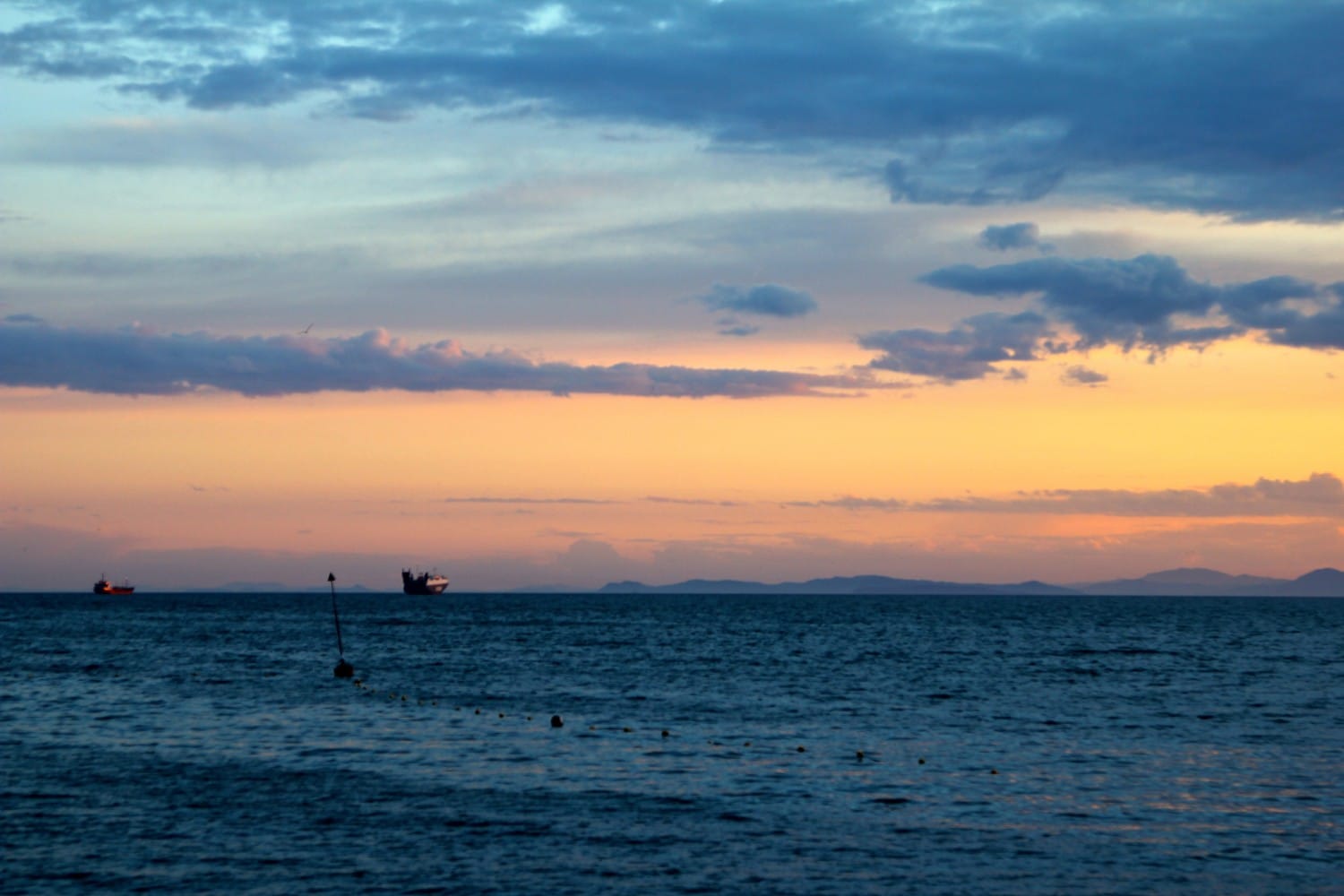Studying abroad is an ocean of experience, of feeling, of emotion. Vast, sometimes turbulent, other times calm. Now, I’m expecting that rush of questions about experience, culture differences, and life when I return home. I’ve been thinking about how I will explain what I did and how I felt. And I realized that, for me, a metaphor of waves feels right.
Movement I: Gentle rolling
It begins with the realization that you want to study abroad. You begin to search for programs. Maybe your university has a system of recognized programs and SRAS happens to be one of them. Or maybe simply stumble upon SRAS with an internet search. You fill out the application and wait. You wonder what will happen next. But you must continue your life, so you simply wait. This is gentle rolling.
Movement II: The First Rise
You’ve been accepted! Congratulations! You’re still at home or in your university and you’re ecstatic that you are finally going somewhere. It’s a relief. Some of your older friends are studying abroad currently and you’re simply pleased that you will get to do something somewhat similar to what they post on Twitter or Facebook. Anticipation builds as you scurry around to gather documents and fill out visa applications. You still continue life and study for finals. This is the first rise.
Movement III: The Peak
It’s the night before your flight. “Did I remember everything? What did I forget?”, the voice in your mind rotates over and over. You’ll run through your checklist in your mind dozens of times. Maybe you’ll pull out your grammar book and attempt to do some last minute practice. Nothing helps because your mind is consumed with the future. You attempt to sleep (with your passport underneath your pillow), but your mind prohibits you from doing so.
Next thing you know, you’re hugging your friends and family goodbye. You pass security. You arrive early because it’s an international flight and you wait for what seems like an eternity for your flight to be called. The plane taxis to the runway; your heart is an 808 drum. Adrenaline soars at the simultaneous moment the plane leaves the runway. You experience fear and a sudden gut-wrenching urge of regret as you watch the ground quickly disappear in the clouds. “What did I get myself into?” – a question that reverberates within your skull as the plane hits 30,000 feet. This is the peak.
Movement IV: The Crash
After an exhausting ten to twelve plus hours of travel, you arrive at your destination. The journey was painfully rough; sitting for hours can do that to you. You’re drained, you want sleep. But you’re denied. Blasts of culture, shots of confusion. You step out of the airport and an immediate rush of gypsy cab drivers shout in your face. You’re overwhelmed. You find your ride and get to your host place and the next thing you know is you’re on a tour of the city. Now, an orientation of the school. Now, you’re filling out paperwork in another language. New faces, new places whirl, twirl, spin around and everything is new. You want to pause, to stop, catch your breath, and recollect yourself. The next day, you get lost. Getting to the right place takes forever because you don’t recognize anything that you saw yesterday. You don’t understand anything anyone says. You pantomime wants and squeak meager requests. You feel alone.
The crash isn’t just the moment you arrive, but your first two weeks. Maybe even your first month. Everything is new and every day is an adventure. Expectation grinds against reality. Advice you were given in your homeland doesn’t connect with what you’re experiencing. Stereotypes either don’t match up or fit too well. “Don’t smile in public, act natural,” you tell yourself as you walk straight, eyes down in public, “try to fit in.” You get flustered when people don’t understand you; you desperately, wholeheartedly desire to say your actual, true thoughts, but continually fall back on three word sentences. You jump from depression to amazement to frustration to numbness within hours. You spend a lot of time in your head, processing. Now is period of vulnerability. This is the crash.
Movement V: The Recall
You acclimate. You grow; linguistically, culturally, personally. You learn the ways of the road, how to act. You learn how to navigate the busses. You flourish with confidence through your daily experience. You discover how to do things efficiently. You discover shortcuts and start going through the movements. Life doesn’t necessarily get boring, but you definitely find a rhythm and stick to it. You stick to places that you know, just out of convenience. You stick with people you’re comfortable with. You stick with food you like, just because you don’t desire to try anything new. You have a firm grasp of culture and calmly float through classes. This comfort is deceiving; you withdraw into a small circle of area and friends. This is the recall.
Movement VI: The Second Rise

A splash. You reawaken from your stupor. Something inspires you to go out again, to explore places that you previously passed. Maybe it’s a single, defining moment/encounter where you realize this is an opportunity that needs to be seized, not wasted away. Or maybe the accumulation of your routine gives rise to a desire of freshness. You go out with bright eyes. You have fun again. You break out. This is the second rise.
Movement VII: Peak, Ebb and Flow
Before you realize it, it is time to leave. You’re amazed with how much you’ve grown. You look at pictures of yourself when you first arrived and ponder where that person is now. You’re confident now. You survived. You’ve faced challenges, soared in triumphs, overcame difficulties. You wish to tell all those who are about to begin their study abroad experience everything you have learned! But you know what you tell them, just like others told you, will not be applicable to the experience. And just like an ocean, the cycle begins anew.



